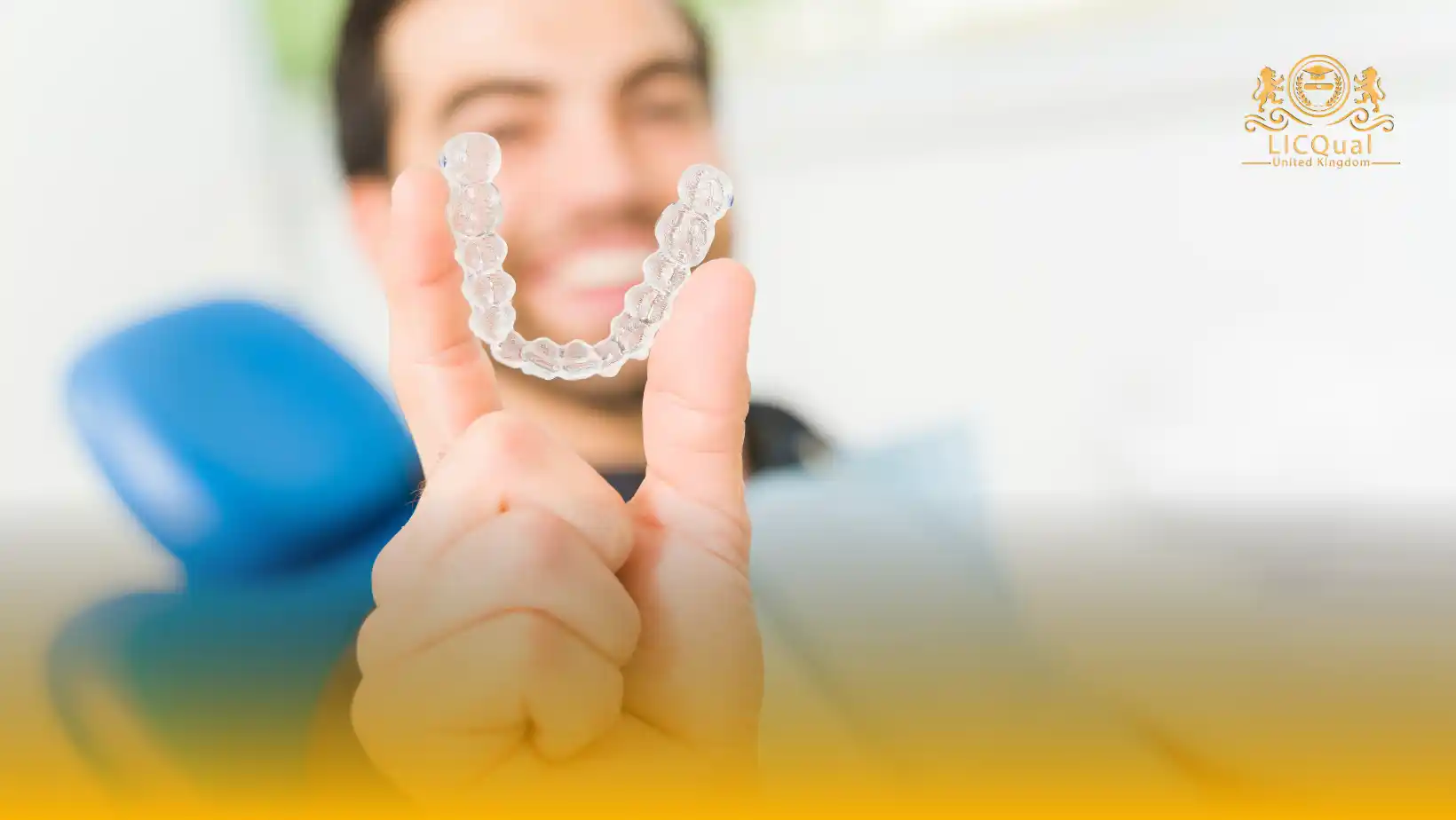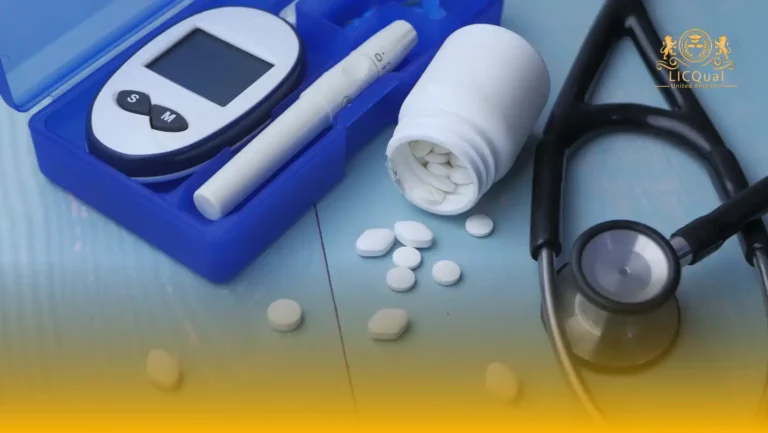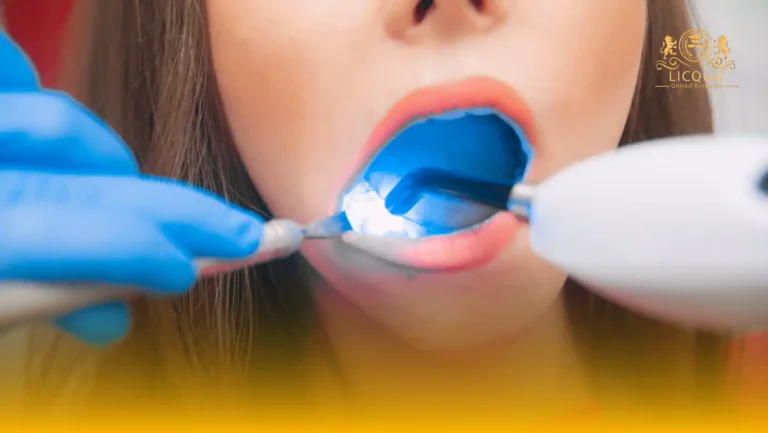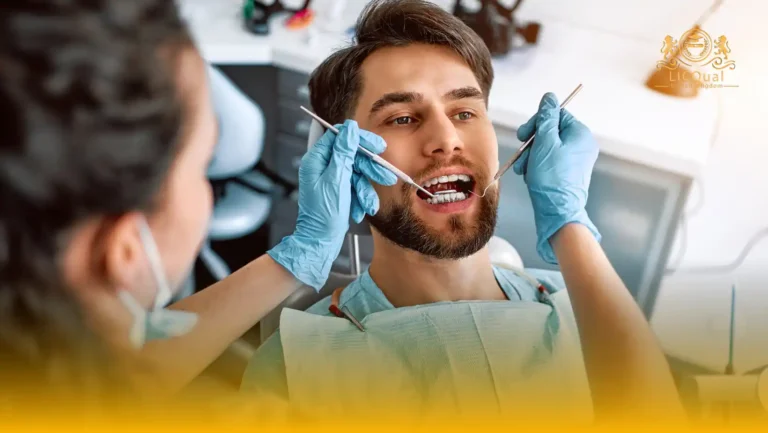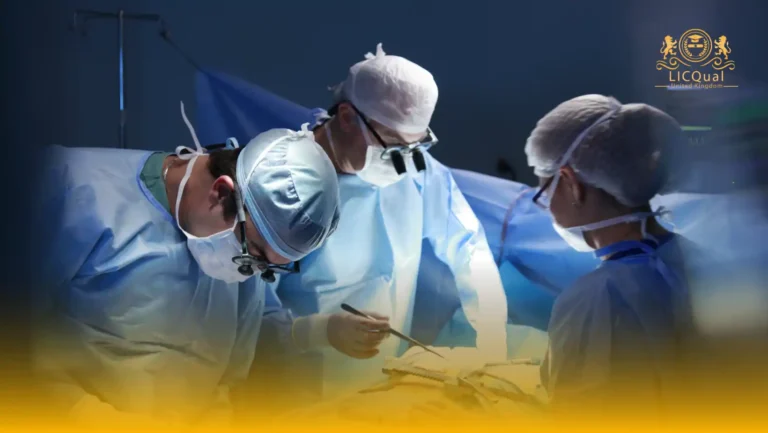The LICQual Level 7 Postgraduate Diploma in Orthodontics (PgD Orthodontics) is an advanced, specialised qualification designed for experienced dental professionals seeking to elevate their expertise in orthodontic principles, techniques, and patient care. This prestigious programme is not intended for fresh candidates; instead, it is aimed at practitioners who wish to enhance their career prospects, broaden their professional knowledge, and fulfil their Continuing Professional Development (CPD) goals.
Through a comprehensive curriculum, learners will develop an in-depth understanding of orthodontic diagnosis, treatment planning, biomechanics, appliance systems, and patient management. The course focuses on both theoretical mastery and practical application, enabling professionals to deliver high-quality orthodontic treatments with precision and confidence.
Centres delivering this qualification must ensure that they have competent and qualified staff, along with the necessary facilities, equipment, and learning resources to maintain the highest standards of training. This ensures that every learner benefits from expert guidance, hands-on experience, and a supportive learning environment conducive to professional growth.
By undertaking this Level 7 postgraduate diploma, dental practitioners can position themselves as leaders in the orthodontic field, expand their scope of practice, and gain recognition for their advanced skills. Whether aiming to refine clinical techniques, adopt innovative treatment methods, or meet CPD requirements, this qualification provides a robust pathway to success in modern orthodontics.
Course Overview
Qualification Title
LICQual Level 7 Postgraduate Diploma in Orthodontics (PgD Orthodontics)
Total Units
6
Total Credits
120
GLH
600
Qualification #
LICQ2200688
Qualification Specification
To enroll in the LICQual Level 7 Postgraduate Diploma in Orthodontics (PgD Orthodontics), applicants must meet the following criteria:
|
Qualification# |
Unit Title |
Credits |
GLH |
|---|---|---|---|
|
LICQ2200688-1 |
Advanced Principles of Orthodontic Diagnosis and Treatment Planning |
20 |
100 |
|
LICQ2200688-2 |
Orthodontic Biomechanics and Force Systems |
20 |
100 |
|
LICQ2200688-3 |
Fixed and Removable Orthodontic Appliances |
20 |
100 |
|
LICQ2200688-4 |
Orthodontics for Complex and Interdisciplinary Cases |
20 |
100 |
|
LICQ2200688-5 |
Clinical Orthodontics: Hands-on Practice and Case Management |
20 |
100 |
|
LICQ2200688-6 |
Professional Practice, Ethics, and Continuing Professional Development in Orthodontics |
20 |
100 |
By the end of this course, learners will be able to:
1. Advanced Principles of Orthodontic Diagnosis and Treatment Planning
By the end of this unit, the learner will be able to:
- Critically analyse malocclusion types and their underlying skeletal and dental causes.
- Perform comprehensive orthodontic assessments using clinical, radiographic, and photographic records.
- Formulate patient-specific treatment plans integrating functional, aesthetic, and long-term stability considerations.
- Evaluate risks, benefits, and alternative treatment options for informed patient consent.
2. Orthodontic Biomechanics and Force Systems
By the end of this unit, the learner will be able to:
- Explain the biological basis of tooth movement and periodontal response to orthodontic forces.
- Apply biomechanical principles to achieve controlled and predictable tooth movement.
- Assess and select appropriate force systems for various clinical scenarios.
- Analyse and resolve biomechanical challenges during treatment progression.
3. Fixed and Removable Orthodontic Appliances
By the end of this unit, the learner will be able to:
- Compare and contrast different fixed and removable appliance systems, including their indications and limitations.
- Design and adjust appliances to meet individual patient requirements.
- Manage patient compliance and troubleshoot appliance-related complications.
- Integrate emerging technologies, such as clear aligners, into treatment protocols.
4. Orthodontics for Complex and Interdisciplinary Cases
By the end of this unit, the learner will be able to:
- Assess and plan orthodontic treatment for patients with severe skeletal or dental discrepancies.
- Collaborate effectively with other dental specialists for integrated care plans.
- Manage orthodontic treatment in cases requiring surgical or restorative interventions.
- Apply evidence-based approaches to complex case management.
5. Clinical Orthodontics: Hands-on Practice and Case Management
By the end of this unit, the learner will be able to:
- Demonstrate advanced clinical skills in appliance placement, adjustment, and finishing.
- Document, monitor, and critically review treatment progress using standardised protocols.
- Apply problem-solving strategies to address unexpected clinical challenges.
- Present detailed case studies showcasing treatment outcomes and reflective learning.
6. Professional Practice, Ethics, and Continuing Professional Development in Orthodontics
By the end of this unit, the learner will be able to:
- Apply ethical principles and legal requirements in orthodontic practice.
- Communicate effectively with patients, colleagues, and other healthcare professionals.
- Develop a personal CPD plan to maintain and enhance professional competence.
- Engage with current research and innovations to improve clinical practice.
The LICQual Level 7 Postgraduate Diploma in Orthodontics (PgD Orthodontics) is tailored for dental professionals who aspire to master advanced orthodontic techniques, improve clinical outcomes, and achieve global recognition in the field of orthodontics. This program is ideal for individuals seeking to deepen their knowledge in smile design, biomechanics, and patient-centered treatment. Whether you are a practicing dentist, dental specialist, or recent graduate, this Level 7 Diploma in Orthodontics empowers you with the skills, confidence, and credentials to excel in modern orthodontic practice worldwide.
1. Practicing Dentists Seeking Orthodontic Specialization
- Perfect for general dentists aiming to specialize in orthodontic treatment and smile correction.
- Learn advanced diagnosis, treatment planning, and appliance management.
- Gain hands-on experience with fixed, removable, and aligner-based systems.
- Develop confidence in managing complex orthodontic cases ethically and effectively.
- Earn a globally recognized LICQual Level 7 Postgraduate Diploma in Orthodontics to enhance your professional standing.
2. Dental Specialists Expanding Clinical Expertise
- Ideal for prosthodontists, periodontists, and oral surgeons adding orthodontic knowledge to their skill set.
- Understand how orthodontic principles integrate with multidisciplinary dental care.
- Learn advanced biomechanics and facial aesthetics techniques.
- Enhance patient outcomes through collaborative treatment approaches.
- Build an international professional network in postgraduate orthodontic practice.
3. Recent Dental Graduates Building a Strong Career Foundation
- A great starting point for new dental professionals pursuing orthodontic specialization.
- Strengthen your academic and clinical profile for competitive dental practice.
- Learn directly from orthodontic experts and case-based scenarios.
- Gain confidence in digital orthodontics and modern clinical technologies.
- Earn an advanced qualification that supports international career growth.
4. Orthodontic Assistants and Clinical Coordinators
- Learn orthodontic principles to improve your support role in dental clinics.
- Understand patient assessment, appliance management, and record-keeping.
- Gain insights into communication and patient motivation in orthodontic care.
- Support orthodontists in advanced diagnostic and treatment procedures.
- Enhance your professional skills with an accredited Level 7 orthodontic training diploma.
5. Dental Educators and Academic Trainers
- Suitable for lecturers and instructors seeking to upgrade their teaching credentials.
- Stay current with global orthodontic advancements and clinical innovations.
- Learn how to design evidence-based orthodontic training modules.
- Build research and academic leadership skills in orthodontic education.
- Share advanced knowledge with dental students and professionals worldwide.
6. International Dental Professionals
- Ideal for overseas dentists seeking a globally recognized orthodontic qualification.
- Understand international orthodontic standards and clinical frameworks.
- Adapt your skills for use in private practices or academic institutions abroad.
- Benefit from flexible online and blended learning modes.
- Earn the LICQual Level 7 PgD Orthodontics, respected across borders.
7. Dental Clinic Owners and Practice Managers
- Learn to implement orthodontic services within your practice effectively.
- Understand orthodontic workflow, case selection, and patient management.
- Improve practice profitability with specialized orthodontic offerings.
- Enhance staff training and treatment coordination efficiency.
- Position your clinic as a hub for advanced orthodontic care.
Centres delivering the LICQual Level 7 Postgraduate Diploma in Orthodontics must meet strict quality assurance standards to ensure effective learning, professional competence, and successful learner outcomes.
1. Qualified and Experienced Staff
- Instructors must hold recognised dental qualifications, relevant postgraduate training in orthodontics, and substantial clinical experience.
- Teaching staff should demonstrate current and relevant Continuing Professional Development (CPD) in orthodontics and dental education.
2. Suitable Facilities and Learning Environment
- Access to fully equipped clinical training areas, including dental chairs, orthodontic instruments, and appliance systems.
- Lecture and seminar rooms with appropriate seating, lighting, and audio-visual equipment for theoretical learning.
3. Access to Clinical Cases and Practical Training
- Centres must provide opportunities for supervised clinical practice on real patients or approved clinical simulations.
- Adequate patient case variety to meet learning and assessment requirements.
4. Learning and Assessment Resources
- Availability of up-to-date orthodontic textbooks, journals, and digital learning materials.
- Access to diagnostic tools such as radiography, cephalometric analysis software, and photographic equipment.
5. Quality Assurance and Compliance
- Centres must implement robust internal quality assurance (IQA) procedures.
- Compliance with all relevant health, safety, and infection control regulations in dental practice.
6. Learner Support
- Provision of academic guidance, clinical supervision, and mentorship throughout the programme.
- Access to feedback systems to support learner progress and professional development.
Assessment and Verification
All units within this qualification are subject to internal assessment by the approved centre and external verification by LICQual. The qualification follows a criterion-referenced assessment approach, ensuring that learners meet all specified learning outcomes.
To achieve a ‘Pass’ in any unit, learners must provide valid, sufficient, and authentic evidence demonstrating their attainment of all learning outcomes and compliance with the prescribed assessment criteria. The Assessor is responsible for evaluating the evidence and determining whether the learner has successfully met the required standards.
Assessors must maintain a clear and comprehensive audit trail, documenting the basis for their assessment decisions to ensure transparency, consistency, and compliance with quality assurance requirements.

